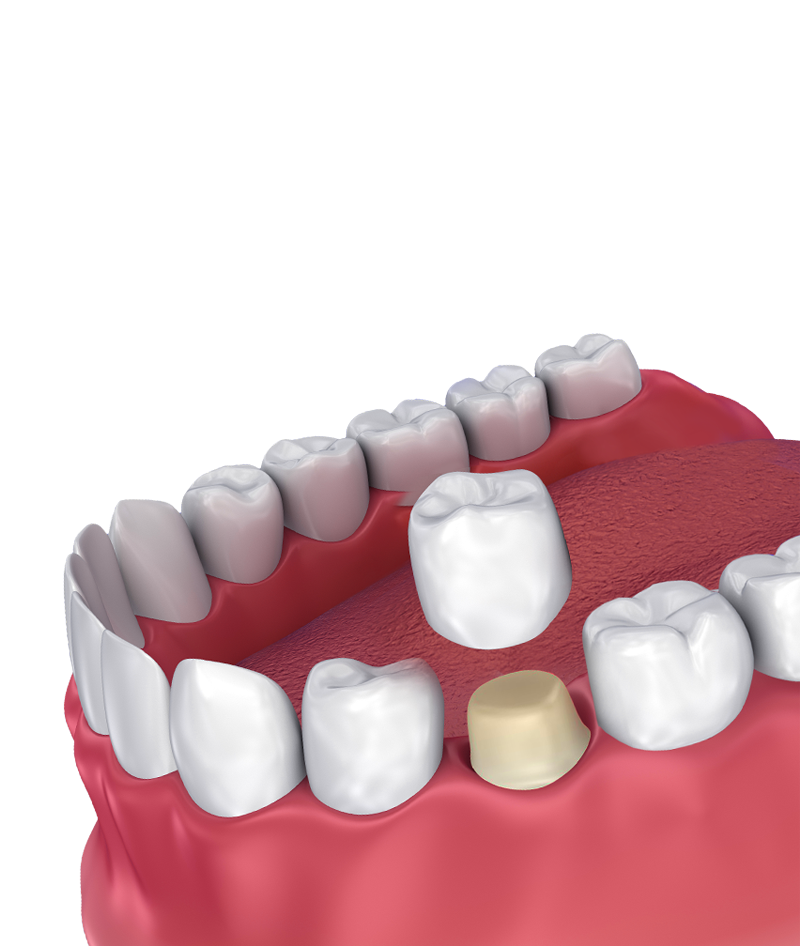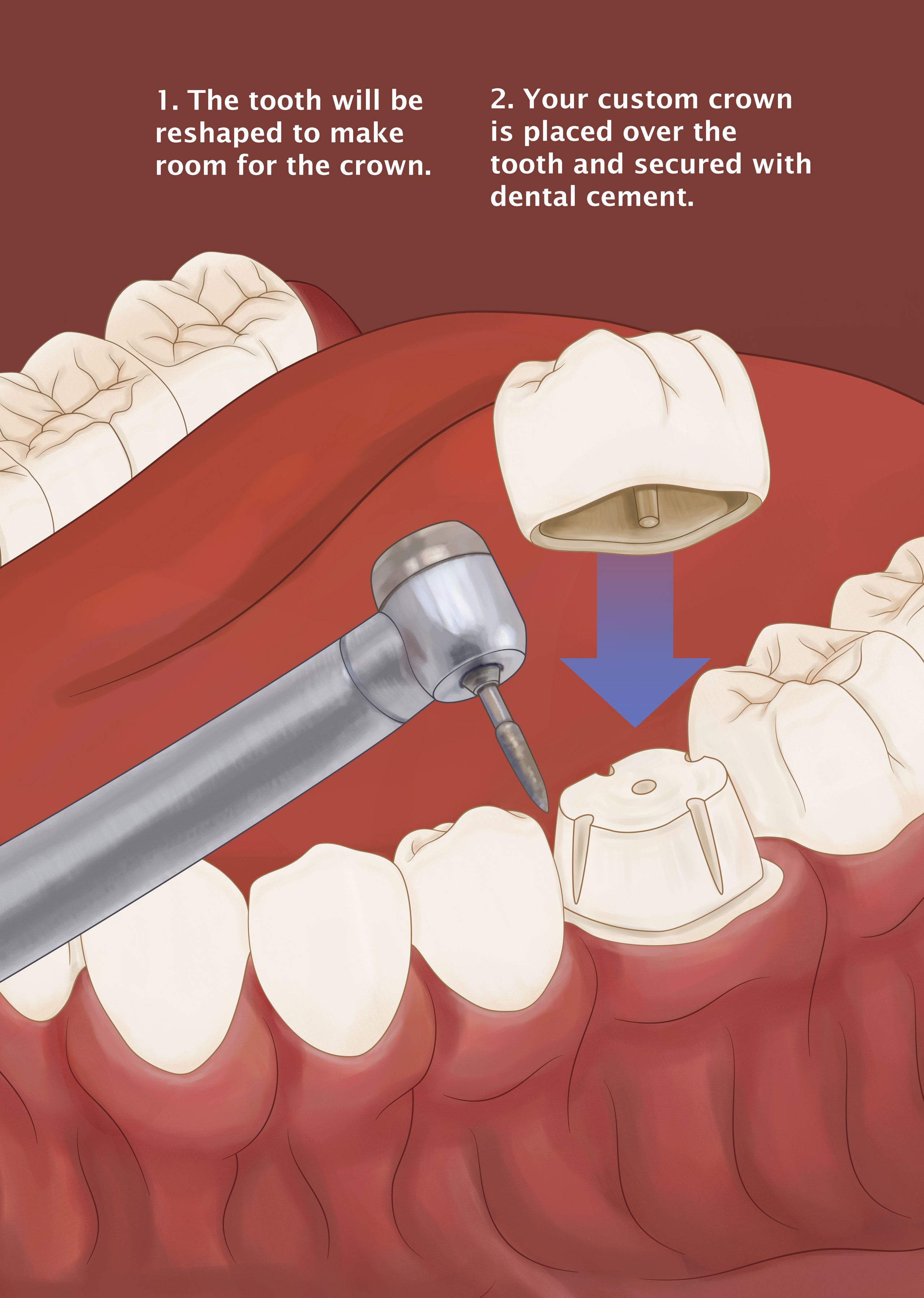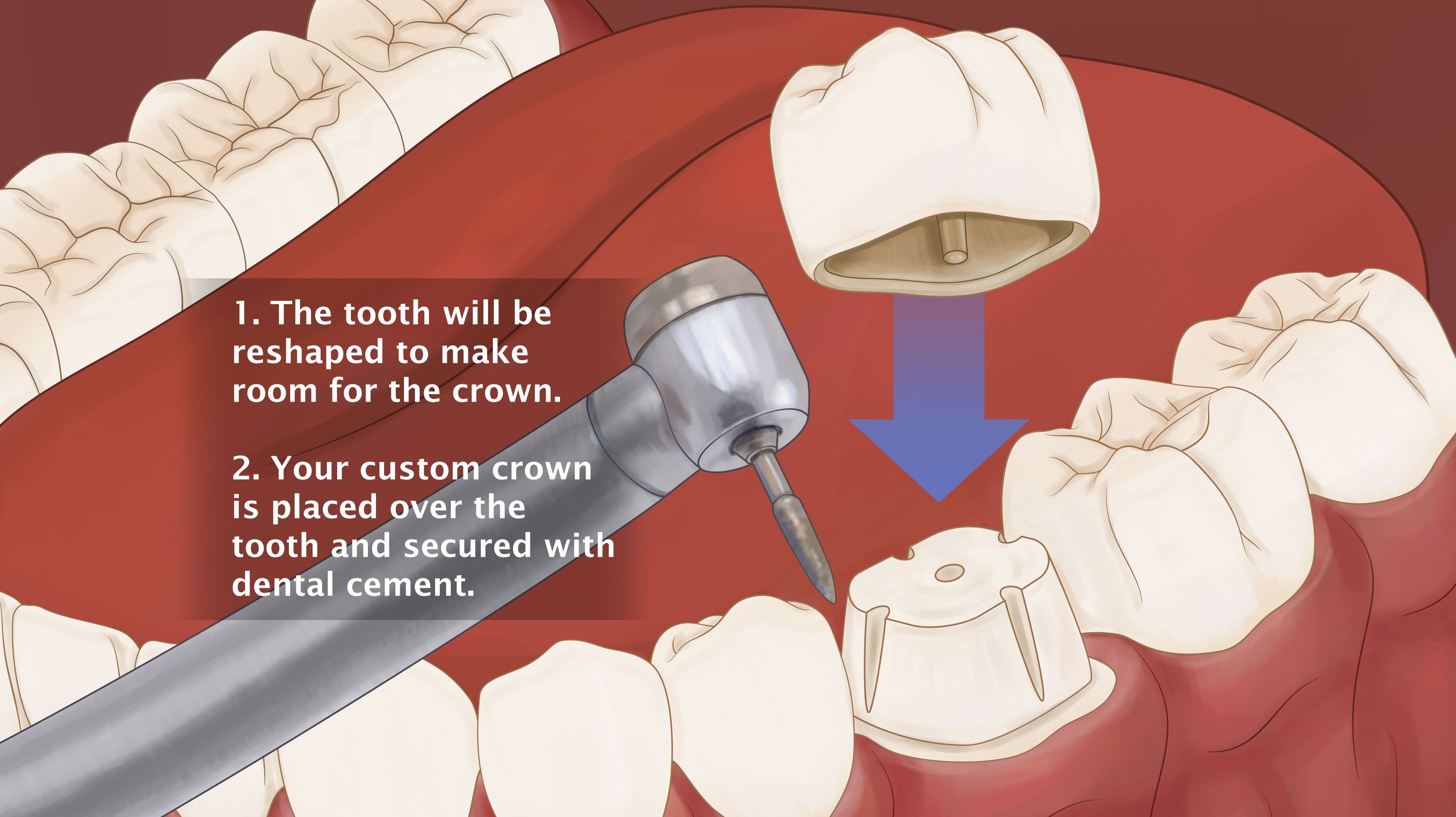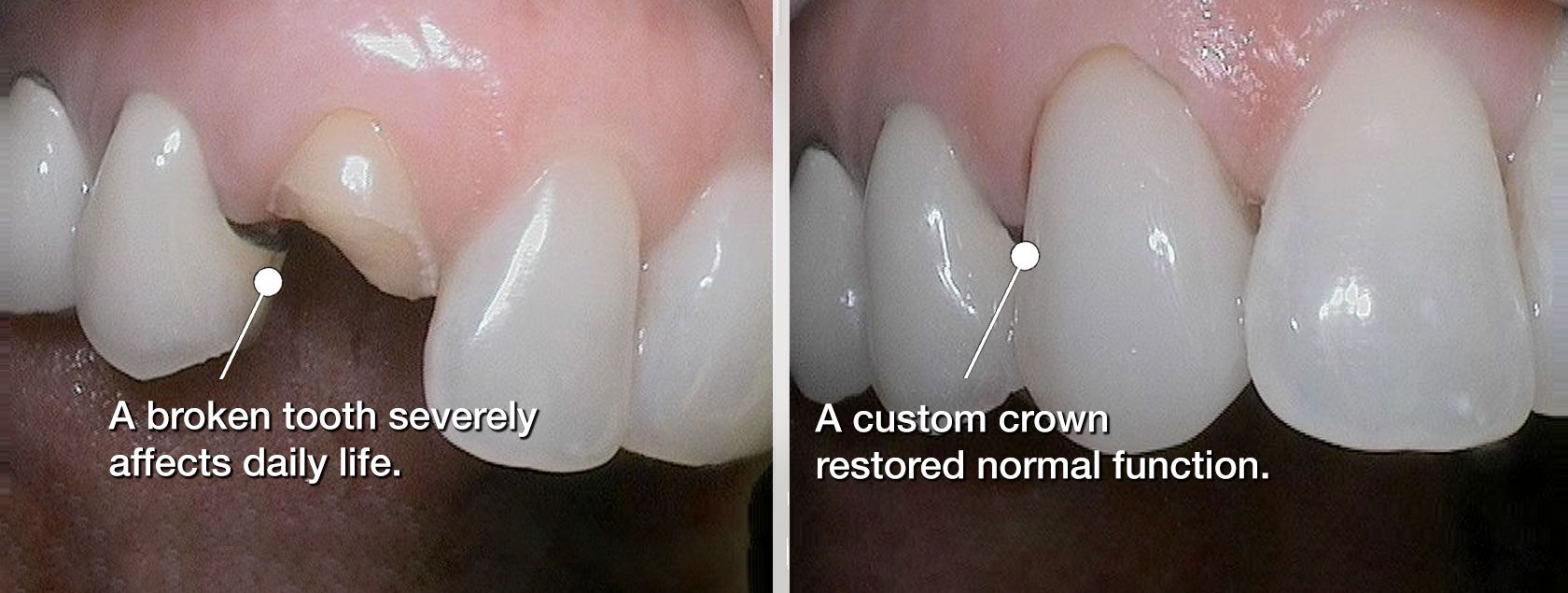
Dental Crowns
Broken or decayed teeth can cause pain, difficulty chewing and speaking, and feelings of self-consciousness.
A dental crown can be placed over the tooth to restore form and function, allowing you to chew, speak, and smile with confidence.
So why should I consider a dental crown?

Dental Crowns Can Restore Your Teeth In a Way That Looks and Feels Completely Natural
Repair and Protect Your Tooth
A dental crown is placed over the affected tooth after treatment for trauma or decay, protecting it from further damage and often preventing the need for extraction.
A Trusted, Durable Solution
Dental crowns are made of strong materials that are designed to withstand normal biting forces. With proper care, they can last up to a decade or more.
Natural-Looking Results
Dental crowns are made from high-quality materials that can be matched to the shade of your surrounding teeth. They also mimic the light-reflecting properties of enamel.
A Long-Lasting Solution
Weakened or Missing Teeth, Deep Stains, and More
It is important to note that crowns require a certain amount of healthy dental tissue for support. For this reason, an extraction might be necessary if your tooth is too compromised to support a dental crown. If this is the case, your doctor can replace your tooth with a dental implant and custom crown.
Tooth Decay and Damage
Crowns can strengthen teeth that have been significantly damaged by tooth decay or trauma. They provide coverage when a tooth cannot be repaired with a filling, inlay, or onlay.
Root Canal Infection
If decay has reached the inner portion of your tooth, your doctor may recommend root canal treatment. Following a root canal, your doctor will typically cover your tooth with a dental crown to protect the remaining tissue.
Cosmetic Issues
Dental crowns can conceal cosmetic imperfections such as intrinsic stains and disproportionately sized teeth. Although porcelain veneers and dental bonding also hide flaws, they may not provide enough coverage in some cases.
Missing Teeth
Single missing teeth can be replaced with implant-supported dental crowns. Unlike traditional dental bridges, implant-supported crowns do not require modification of your adjacent teeth. Implants also prevent jawbone recession following tooth loss.
Crowns Are One of the Most Comprehensive Treatment Options
In most cases, yes – however, they may not be the best solution for your needs. Fillings, inlays, or onlays can be used to replace a decayed or damaged portion of a tooth. While these solutions may be a suitable option for minor cavities or trauma, a dental crown is needed for more severe issues because it can provide much greater protection.
Because most crowns are considered medically necessary and not cosmetic, most insurance plans cover at least part of this cost.
Dental Crown Placement Can Be Completed in One or Two Appointments
If the practice has an in-office milling machine, such as CEREC, you can receive your personalized dental crown in a single appointment.
How to Protect Your Dental Crown
Although crowns are made with high-quality materials, they are not indestructible. You will eventually need to replace the restoration, but there are a few things you can do to help your crown last, including:
- Watch what you eat: Avoid particularly hard or sticky foods, which can damage or dislodge your crown.
- Practice good oral hygiene: For the most part, you can care for a dental crown much like your natural teeth. However, be sure to use a non-abrasive toothpaste to avoid scratching the porcelain. Floss front to back rather than up and down so that you do not dislodge your crown.
- Visit your dentist regularly: During your biannual dental exam, your dentist can make sure that your crown is still in good shape.
- Minimize wear and tear: If you grind your teeth, be sure to wear a nightguard to avoid excessive wear on your crown. You should also avoid habits such as opening packages with your teeth and biting your nails.
Poorly manufactured crowns are also more likely to break early on, which is why it is important to choose a reputable dentist. Your dentist should also ensure that your crown fits properly in your smile. Crowns are not designed to bear the brunt of your bite. If your bite force is not evenly distributed across your dental arch, your crown can sustain irreparable damage.
Beautiful Effects Plus a Stronger, Healthier Bite
Modern dental crowns are virtually indistinguishable from natural teeth. After receiving a permanent crown, many patients find they are able to speak more clearly and chew more comfortably. If you received a dental crown to achieve a cosmetic upgrade, the results can provide improved self-confidence.
Protect & Strengthen Your Smile
Dental crowns are available in a variety of materials that can be customized to provide a natural appearance while restoring your ability to speak clearly and chew properly.
Neglecting to treat a weakened tooth can result in many serious oral health issues requiring expensive and invasive treatment. Schedule an appointment today to determine whether a crown or another solution is the best way to meet your needs.





